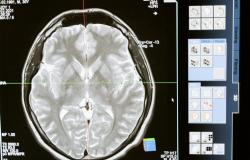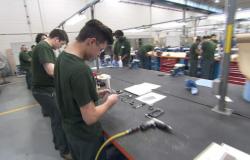
The Optic 2000-Lissac-Audio 2000 Corporate Foundation renews its commitment to the Hearing Institute, a research center of the Institut Pasteur to support research into hearing disorders.
Since 2022, the Optic 2000-Lissac-Audio 2000 Corporate Foundation has supported the research work of two teams from the Hearing Institute, a research center of the Institut Pasteur: CERIAH (research and innovation in human audiology) and the Cognition and Auditory Communication group. On June 4, the two entities signed the renewal of this commitment for 2 years.
Funding research on hearing and vision constitutes one of the 3 priority areas of the Foundation’s action, alongside access to care and equipment for precarious people and care for people with visual and hearing disabilities.
The renewal of this partnership for the years 2024 and 2025 is part of the continuity of the work carried out by these two research teams.
For CERIAH, directed by Paul Avan, it involves developing a mobile Ceriah project made up of nomadic research units, which will travel throughout France.
The mission of this project will be to bring precision audiology as close as possible to patients/people concerned (university hospitals, hearing aid laboratories, patients’ homes), to validate the reliability of nomadic and portable Ceriah tools and to strengthen training. of audiology stakeholders.
Concerning the work of the “Cognition and Auditory Communication” Group, led by Luc Arnal, it focuses on the link between hearing loss and Alzheimer’s disease.
Alzheimer’s disease is a neurodegenerative disease that is constantly progressing to this day and represents more than ever a major public health issue. Faced with this emergency, the research team is focusing on an essential aspect that is often neglected: hearing health. There is in fact a strong link between hearing loss and Alzheimer’s disease. Research explores how better diagnosing and preserving our ability to hear could actually help protect the brain, limiting neurodegeneration and mitigating cognitive decline.
Olivier Padieu, President of the Optic 2000-Lissac-Audio 2000 Foundation : “ This partnership is fully in line with the commitments pursued by our Foundation. We are committed to advancing knowledge of disorders and disabilities impacting hearing, and disseminating this to the general public, health professionals and decision-makers. This is why we support scientific research to participate in this collective awareness. »
The Optic 2000-Lissac-Audio 2000 Corporate Foundation
In 2009, the Optic 2000, LISSAC and AUDIO 2000 brands wanted to pool their solidarity actions and created their Corporate Foundation. Its mission: to support and initiate solidarity actions in order to promote access to optical and hearing equipment in France and around the world and to improve the daily lives of visually and hearing impaired people.
The Foundation’s commitments revolve around three axes:
- Promote access to visual and hearing care for people in precarious situations.
- Support visual and hearing health research.
- Improving the daily lives of people with visual or hearing disabilities.
Concretely, the Foundation supports in particular:
- The Solidarity Shuttle: this mobile unit travels throughout France to offer vision screening and glasses to children and young people in precarious situations. Since 2019, 791 children have been screened and 348 glasses have been issued
- Cecom: for 11 years, these Orientation centers have supported visually impaired people to improve their daily lives. Located in Paris, Lille, Besançon and Nantes, more than 5,122 visually impaired people have benefited from support adapted to their needs.
Presentation of the 2 research teams of the Hearing Institute, research center of the Institut Pasteur
- The Center for Research and Innovation in Human Audiology (CERIAH)
The work carried out jointly between the Hearing Institute and CERIAH is part of major scientific programs such as the development of genomic diagnosis (through the identification of susceptibility genes to presbycusis and overexposure to noise), the development of new hearing tests and the establishment of reference methodologies for advanced audiology. - The work of the “Cognition and Auditory Communication” Group
Capitalizing on a multimodal approach combining a wide variety of brain imaging methods and neuro-computational modeling, the Research Group works to develop new functional models to better explain how acoustic signals are processed by the brain in a normal context. but also in the context of sensory deficiencies (partial or profound deafness).





